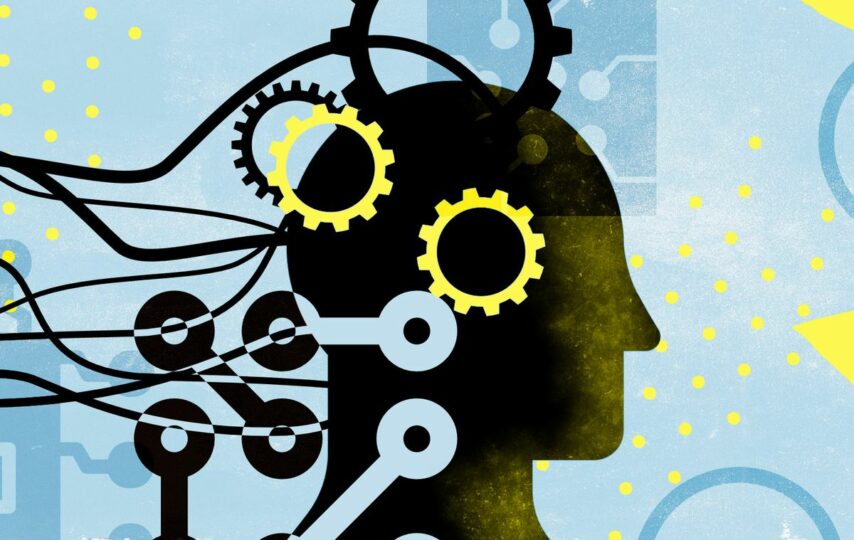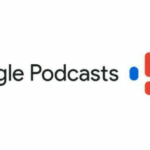Satya Nadella, the CEO of Microsoft, reportedly said the above lines after releasing the powerful Bing with AI superpowers. He, along with all techies, believes that AI would completely transform the way we interact with the internet. The past few weeks were quite exciting for AI.
A lot of things are happening in the field of generative AI. Launch of ChatGPT, Microsoft investing heavily in the OpenAI startup, Google getting scared and launching a “red alert” on the shocking uprising of the chatbot, And so on. The past few months showed how, in a very short time, A.I. could bring a revolutionary change in the Tech World.
In the field of Generative AI, this change had been rapid.
And things have got on to the next step. A heated rivalry between Bing’s new AI Search engine and Bard has caught the attention of the media. It’s just amazing to see how the whole media is drawn to the idea of Generative AI. Not that it didn’t exist before, but the hype bought after the release of ChatGPT is just remarkable.
A few days ago I wrote a post on the same topic titled – Bing and Bard: The A.I. and Search Race. And even though it generated a great response from my readers, the timeline could have been clearer. And fair so, since there is so much happening in recent days.
The interest of the media towards applied A.I. has grown so much. So in order to understand any new development in this field, we must be familiar with the timeline. Various tools like ChatGPT did exist before, but they played a major role towards the hype towards generative A.I.
People now could “see” the influence of A.I. which is pretty cool. And as someone who writes on the new developments in A.I. or Tech in general, it becomes a responsibility (an important one) to guide my readers to better understand the field of generative A.I.
Hence I am making this short and concise post to walk you through the events that happened in the Generative AI field. I am laying a special focus on the events that caused this infamous “Bing vs Bard” rivalry. This would help you to be caught up with the recent developments in this field.
The event timeline, unlike the news and media portray, happens to be less dramatic (At least for now)
The Timeline for the AI race
This is to outline the major events that lead to the viral “Bing vs Bard” rivalry (or “Google vs Microsoft” rivalry, whatever you want to see it. Though the latter description has been going on for years when Google outplayed Microsoft in Search Game).
November 30, 2022:
OpenAI releases ChatGPT, a natural language processing tool that can create content, images and even code on demand via conversations with a chatbot. The AI-driven tool is built on OpenAI’s GPT-3 family of models, which are trained on a large corpus of text from the internet. ChatGPT becomes the fastest growing app of all time, with over 100 million users in two months
February 6, 2023:
Google announces Bard, an experimental conversational AI service that can access the entire Internet and answer natural language queries. Google claims that Bard is more advanced and responsible than ChatGPT, and that it uses information taken from the internet to provide fresh, high-quality responses. Bard is also built on Google’s own AI models, such as BERT and T5
February 7, 2023:
Microsoft unveils the new Bing AI, a chatbot powered by OpenAI’s ChatGPT that can also access massive data sets of online data for user queries and prompts. Microsoft also announces the integration of ChatGPT into its Office products, such as Word, PowerPoint, and Outlook. Microsoft says that Bing AI is faster and more accurate than Bard, and that it can generate more diverse and creative content
February 9, 2023:
The Verge publishes an article on the challenges and implications of AI search, such as privacy, bias, misinformation, and regulation. The article also compares the features and performance of ChatGPT, Bard, and Bing AI, and highlights the potential benefits and risks of generative AI for users and society.
February 10, 2023:
TechRadar compares the features and performance of Microsoft Bing AI and Google Bard, and declares Bing as the winner for its faster and more accurate responses. The article also praises ChatGPT for its versatility and innovation and suggests that users should try all three services to find the best fit for their needs.
February 13, 2023:
The Indian Express publishes an article on the history of AI chatbots before ChatGPT and Bard, such as Alice, Racter, and Jabberwacky
Timeline for Bing AI
I’m pretty sure that the reader, after the hype that was created, must have taken one side. Many say that Bing would finally have a chance to win over Google in the search “monopoly”.
So for those of you who want to know in deep about the progress in Bing AI, here is the timeline. And it interestingly starts in July 2020.
November 2022:
OpenAI releases ChatGPT, a chatbot built on top of GPT-3 that can generate content, images, and code on demand via conversations with a chatbot
February 2023:
Microsoft launches its new Bing AI, a chatbot powered by ChatGPT that can also access massive data sets of online data for user queries and prompts. Microsoft also announces the integration of ChatGPT into its Office products, such as Word, PowerPoint, and Outlook
February 2023:
Microsoft unveils the new AI-powered Microsoft Edge, a web browser that can also leverage ChatGPT to provide users with personalized and relevant content, suggestions, and insights
Timeline for Bard
In spite of scepticism, many still believe that Google would still continue to dominate the search industry. And the argument for it is that Google still continues to dominate in crafting A.I. tools and research. Quite fascinatingly, not too long ago, Google announced that they are going to release 20 A.I. powered tools. So there is quite a big anticipation from them.
Moving on, here is the timeline for the development in Bard.
May 2021
Google announced the first generation of LaMDA during the Google I/O keynote, powered by artificial intelligence. LaMDA was trained on human dialogue and stories, allowing it to engage in open-ended conversations.
November 2020:
OpenAI releases ChatGPT, a chatbot built on top of GPT-3 that can generate content, images, and code on demand via conversations with a chatbot. ChatGPT becomes the fastest-growing app of all time, with over 100 million users in two months
December 2020:
Google asks its employees to test possible competitors to ChatGPT, such as BERT and T5, two of its own AI models that can process natural language queries. Google also starts developing Bard, a new conversational AI service that can access the entire Internet and answer natural language queries
January 2021:
Google tests Bard internally with a small group of employees, and collects feedback and data to improve the service. Google also works on ensuring that Bard is ethical and responsible, and that it does not generate harmful or misleading content
February 2021:
Google announces Bard, an experimental conversational AI service that can access the entire Internet and answer natural language queries. Google claims that Bard is more advanced and responsible than ChatGPT, and that it uses information taken from the internet to provide fresh, high-quality responses. Google also says that Bard is built on its own AI models, such as BERT and T5, which are trained on a larger and more diverse data set than ChatGPT
Google CEO Sundar Pichai sends an email to employees, highlighting the testing and rollout timeline of Bard, and emphasizing the importance of AI ethics and responsibility. Pichai also says that Bard is a milestone for Google’s AI research, and that it will enable new possibilities for users and society
Google launches Bard as a beta service for select users, and invites feedback and suggestions to improve the service. Google also says that Bard will be integrated with its other products and services, such as Google Search, Google Assistant, and Gmail, in the future
Bard gave an inaccurate answer in an advertisement that was posted on Twitter, claiming that the first photos of a planet outside the Earth’s solar system were taken by the Hubble Space Telescope, when in fact they were taken by the Kepler Space Telescope. This mistake caused a huge backlash on social media, and led to a sharp drop in Alphabet’s stock price, losing about $100 billion in market value. Google apologized for the error and said it was working to improve Bard’s accuracy and reliability.
…there is more
I am pretty sure of one thing. No mater how much the AI hype grows, it will fall soon (as like with every other viral trend). The A.I. hype around ChatGPT ‘bubble’ will burst soon. But the developments in this field wont go down, and we are yet to see more.
Here is a question for the readers.
Will the new Bing A.I. or Bard from Google charge users to use their AI-powered tools?
Let me know in the comments about your views and opinions regarding this.
.
See you on the flip side.








